Theater Director Kail ’99 Leads Alumni Career Conversation
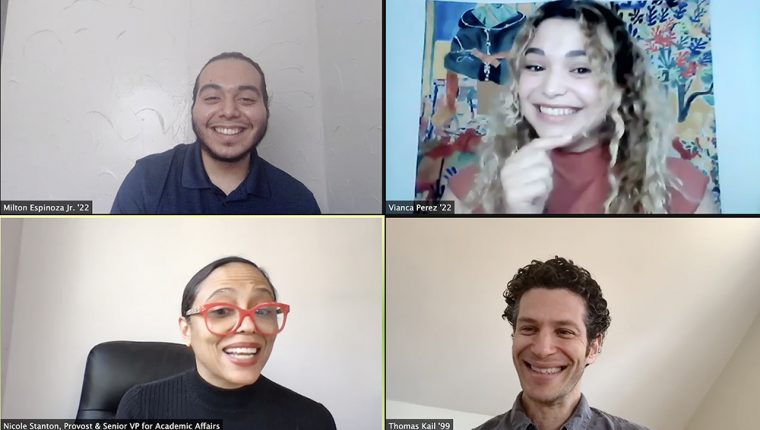
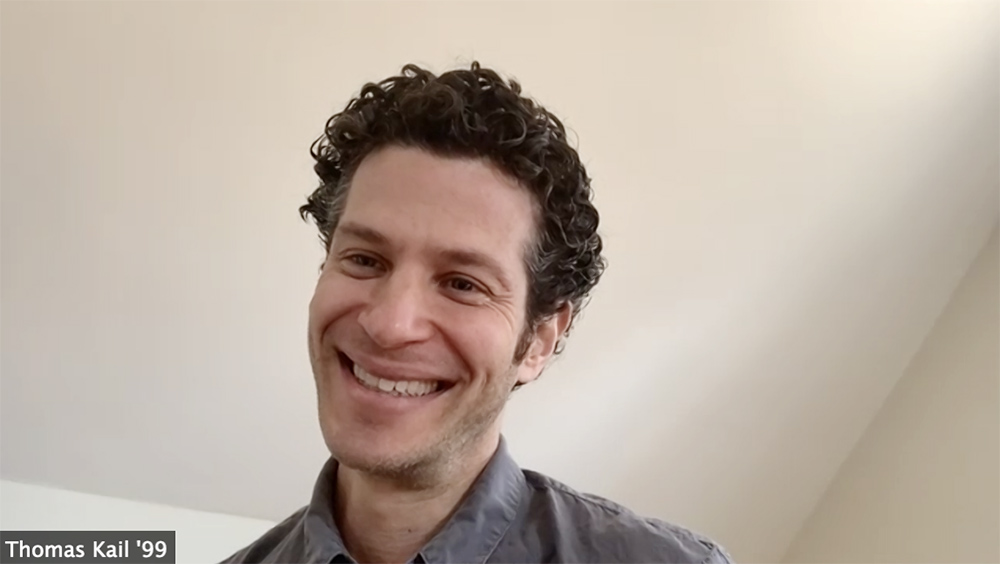
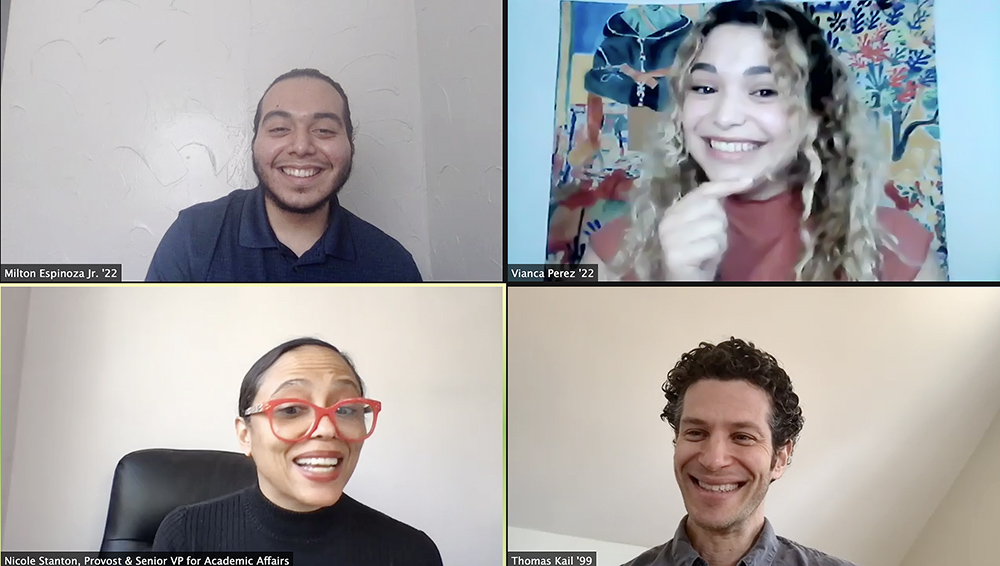
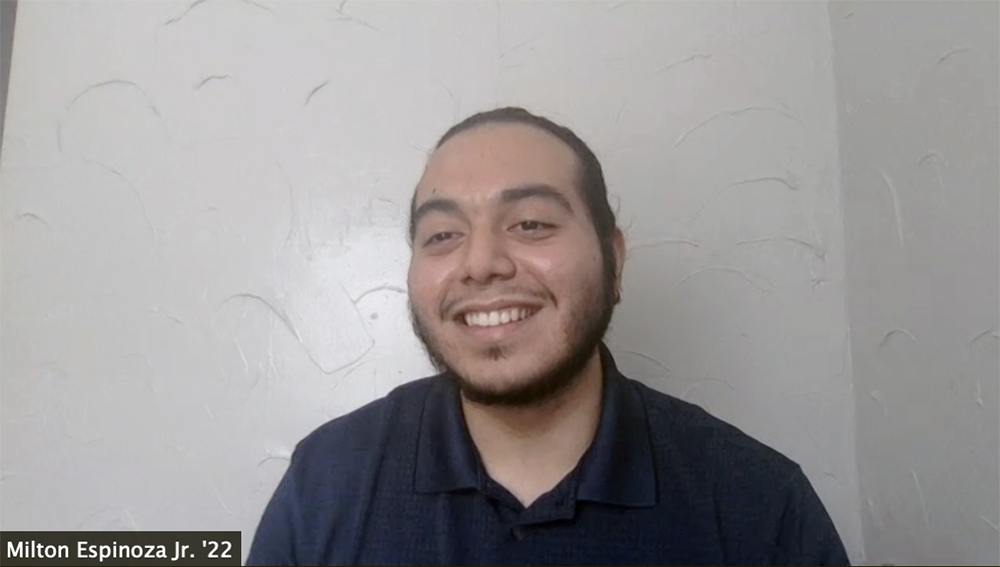
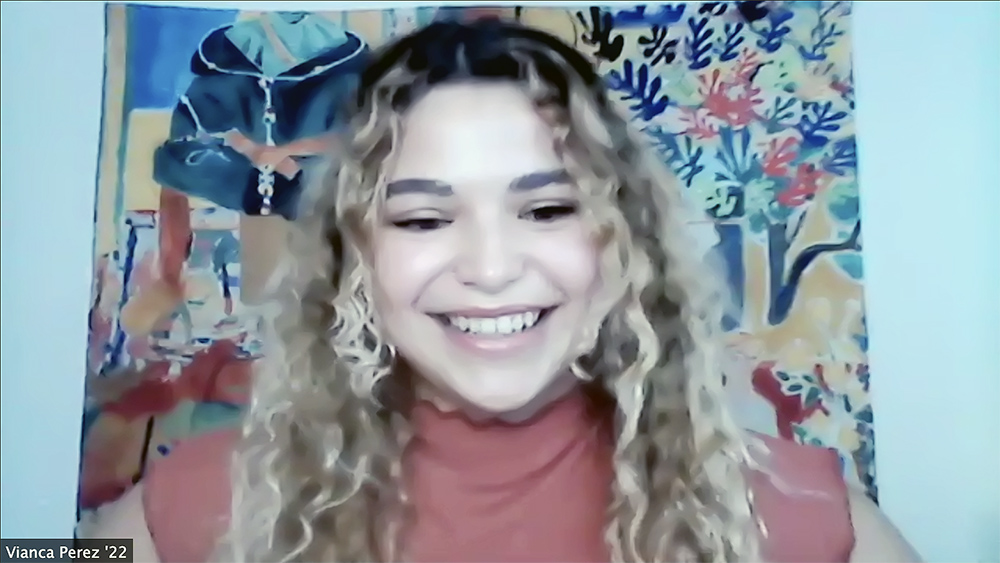
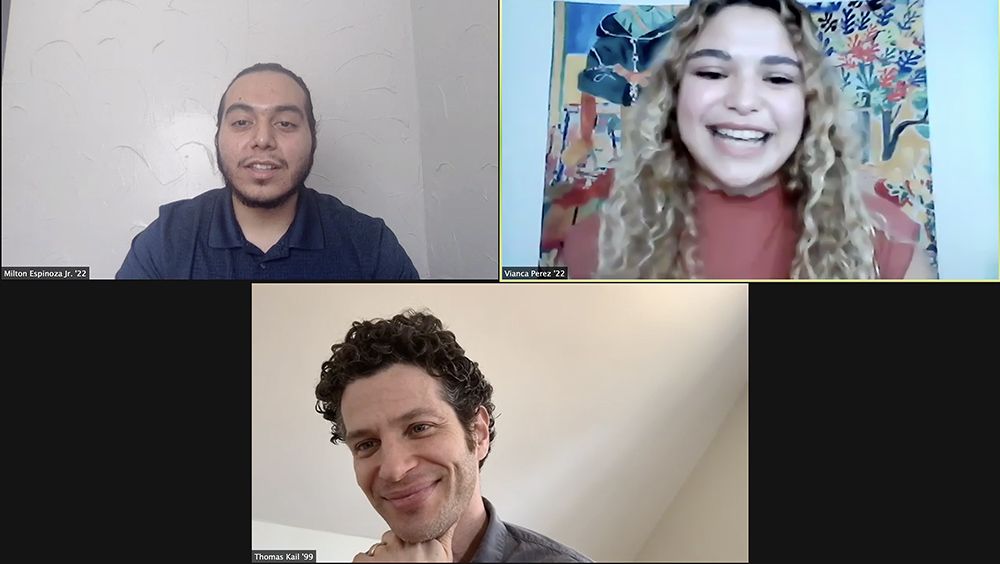
Below are comments made by Kail during the conversation:
On working with others: “I work with my best friends. What’s better than that? So I get to go and spend time—10 to 12 hours a day—with the people I respect the most, admire the most. . . . I like to keep a core of people that I have a relationship with in a shorthand and then add 10 new people to the fold to keep on growing. I love meeting new designers, working with new writers, and I’ve done primarily new stuff. I like being in rehearsal. I like being around people that are looking hard at what they do.”
On getting started after college: “There was a friend of mine from Wesleyan who told me about this little theater in New Jersey called the American Stage Company, and I applied to be an ASM (assistant stage manager). . . . I applied to this job and . . . he said, ‘Here’s what you’re gonna do. You’re going to drive the van and go pick up the actors. You’re going to sweep the stage. You’re going to help us write the program. You’re going to be backstage running props. You’re going to do anything that needs to be done. How does that sound?’ I said, ‘It sounds like what I need.’ And so I took this job. I got paid $84 a week after taxes. I was living in a basement apartment. I worked six days a week, 18 hours a day. Soup and tuna fish. I can’t get either of them now. . . . I just sort of soaked it all up.”
On theater being economically viable: “Especially early on your career . . . [there’s] no one hiring you but yourself. Can I see myself spending years working on this? Does it give me energy? Does it give me joy? Can I balance that with practicality? You just have to talk to yourself honestly. What are your weekly operating costs as a human wherever you live? You [might have] to wait tables or have some other kind of gig, but it allows you to do the thing that fills you up. Then it’s how long can you sustain that balance, and that’s the question every artist has to ask himself constantly. So it’s really an essential question and one that keeps on coming back. And I think it needs to keep coming back. . . . I had two jobs: I worked as a personal assistant for five years until I felt like I was ready to make the leap and I was able to support myself as a director. But that really didn’t happen until my late 20s—I was almost 30 years old. So it’s also just being aware of what’s necessary to get you to each of those next places. Making a living in the theater is absolutely possible but usually has to be supplemented for some period of time, years and years of your life.”
On meeting Hamilton creator Lin-Manuel Miranda ’02, Hon. ’15: “My friends [and I] worked on shows—a series of shorts—that we did in the Fayerweather Gymnasium, which exists in a different form now, and that’s actually when I first heard about Lin because Lin was doing the show as a freshman. I don’t know about everybody else, but I was not talking to freshmen. I heard about some kid who was borrowing our lights. So we had to share lights with some kid? I was like, who is this? It probably was the first time I heard his name and I cursed his name. Little did I know that [he’d be part of] the next two decades of my life. . . . [Now], if I see Lin digging, and I’m walking by, I don’t ask what he’s doing, I just jump down there and grab the shovel. We’ve never led each other astray. We’ve always been so in sync, and being with him is joyful and we get to make things together.”
On non-directing theater jobs: “I came up a stage manager. I know how hard that job is. I know how hard it is to run the props department or to be backstage. I have an appreciation for my collaborators, and you know, there’s always more to learn, and the best way that I learn is from people. How do you continue to evolve? Put yourself in situations where you don’t go in knowing all of the answers. If you know all the answers then it’s probably time do something else. And so I think if you look at some of the patterns of my career, even though thematically, I think there’s some things that make up [patterns], I tend to not do the same thing twice and occasionally. . . . [W]hat happens often is if you do something pretty well, people say ‘Great, now do it again.’ And I would try to take those opportunities to do something quite different. And I thought that allowed me to continue to expand.”
On bringing diversity and inclusion into the theater industry: “I think it’s the fundamental question of the day, and I think it’s one that we just have to keep way more in the foreground . . . and that includes anybody in any position, whether to a leadership position or not. So the conversations now, as we make new versions of Hamilton with new companies, we’ll talk more directly about what it means to be Black and Brown and telling the story. Embracing the fact that it doesn’t have to be comfortable, but it needs to be respectful and open and truthful, and those are the things that I think matter within the room. . . . So what’s the next evolution of thought for this next generation of storytellers? . . . Stories that have been reaching as diverse an audience as possible.”
On working in theater: “The hard thing is, in theaters, you’ve got to do it every day. No one cares on a Wednesday matinee how good the Tuesday night show was. All they have now is expectations. So you’ve got to deliver. I always think theater is like running a restaurant. You’ve gotta make the meal every time because, ‘I hear the soup’s good,’ so you better make good soup.”
On what he’s watching now: “The thing that is giving me life is on Amazon and it’s Steve McQueen’s Small Axe. It’s five movies about the immigrant experience in London, basically in the late ’60s to 1980s. You can watch one of them, or you can watch them in a row. It’s the most beautiful thing that I’ve seen in the last year.”

